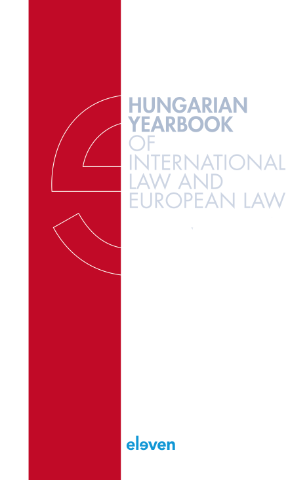|
One of the prominent international human rights issues of the past decades has been the question of responsibility for human rights infringements related to the activities of nongovernmental actors and especially transnational corporations (TNCs). This challenge is directly related to the continuous increase in foreign capital investments witnessed in the past fifty years. The phenomenon is faithfully characterised by the fact that there are 80,000 transnational companies and some ten times as many subsidiaries operating in today’s world economy whose impact on people’s everyday lives has been steadily growing. This study aims to outline certain correlations between this new phenomenon of the business world and internationally acknowledged human rights. Within this framework the study attempts to explore the essence of the dilemma and presents the international law attempts aimed to remedy the infringements. Finally, the study analyses the international law solution currently in force and then examines the perspectives of the latest efforts. |


Hungarian Yearbook of International Law and European Law
About this journalSubscribe to the email alerts for this journal here to receive notifications when a new issue is at your disposal.
| Editorial |
|
| Authors | Petra Lea Láncos and Réka Varga |
| Article |
|
| Authors | Ielyzaveta Lvova |
| Author's information |
| Article |
|
| Authors | Balázs András Orbán |
| Author's information |
| Article |
|
| Authors | Barbara Bazánth and Gábor Kajtár |
| Author's information |
| Article |
|
| Authors | László Komáromi |
| Author's information |
| Article |
|
| Authors | Tamás Molnár |
| Author's information |
| Article |
|
| Authors | Blanka Ujvári |
| Author's information |
| Article |
|
| Authors | Anita Rozália Nagy-Nádasdi |
| Author's information |
| Article |
|
| Authors | Snezana Trifunovska |
| Author's information |
| Article |
|
| Authors | Tamás Lattmann |
| Author's information |
| Article |
|
| Authors | Saeed Bagheri |
| Author's information |
| Article |
|
| Authors | Lénárd Sándor |
| AbstractAuthor's information |
| Article |
|
| Authors | Dodik Setiawan Nur Heriyanto |
| AbstractAuthor's information |
|
The Agreement on Transboundary Haze Pollution (“ATHP”), which has been signed by ASEAN member states, aims to overcome the annual haze problem in the region. Since the treaty came into force on 25 November 2003, the signatory nations urged Indonesia, the dominant contributor to the haze pollution, to ratify the agreement. After taking more than a decade to consider, Indonesia finally ratified the agreement in 2014, evincing its serious effort to prevent future forest fires. This study analyzes important issues of state responsibility and effective legal recourse to cope with the unresolved haze problem. Due to the ineffectiveness of ATHP, this study presents two effective legal measures: utilizing another relevant international treaty that offers an effective dispute settlement mechanism and building international awareness to stop using products from endangered forests. |
| Article |
|
| Authors | Laura Gyeney |
| Author's information |
| Article |
|
| Authors | Petra Lea Láncos |
| Author's information |
|
The Lisbon Treaty introduced the European Citizens’ Initiative (ECI), a brand new tool of transnational participatory democracy aiming to bring Europe closer to the people. Five years after the first ECI was lodged, we have yet to see an ECI that would pass the full procedure and end up as a proposal for a legal act. The European Commission (hereinafter: Commission) refused to register almost one third of the initiatives lodged on the basis that they fall manifestly outside the framework of the Commission’s powers to submit a proposal for a legal act. The organizers of the refused Minority SafePack ECI challenged the Commission’s decision before the Court of Justice of the European Union. The General Court approved the claims of the organizers of an ECI for the first time in this case. The General Court’s findings with regard to the Commission’s duty to give proper reasoning with respect to the refusal of an ECI may be a small but important step in achieving the goals of the ECI. |
| Article |
|
| Authors | Tamás Kollarik and Sándor Takó |
| Author's information |
| Article |
|
| Authors | János Tamás Czigle |
| Author's information |
| Article |
|
| Authors | Márton Leó Zaccaria |
| Author's information |
| Article |
|
| Authors | Franciska Takó-Bencze and Sándor Takó |
| Author's information |
| Article |
|
| Authors | Endre Győző Szabó |
| Author's information |
| Article |
|
| Authors | Zsuzsanna Binczki |
| Author's information |
| Article |
|
| Authors | Andrea Gioia |
| Author's information |
| Article |
|
| Authors | Christine Byron |
| Author's information |
| Article |
|
| Authors | Eszter Bodnár and Benedek Varsányi |
| Author's information |
| Article |
|
| Authors | Viktor Rák and Tamás Balogh |
| Author's information |
| Article |
|
| Authors | András László Pap |
| Author's information |
| Article |
|
| Authors | Áron Péter Balogh |
| Author's information |
| Article |
|
| Authors | Veronika Kéri and Zoltán Pozsár-Szentmiklósy |
| Author's information |
| Book Review |
|
| Authors | János Czigle |
| Author's information |
| Book Review |
|
| Authors | Enikő Virág |
| Author's information |

 Issue 1
Issue 1